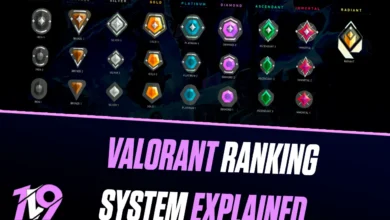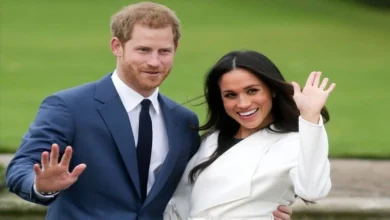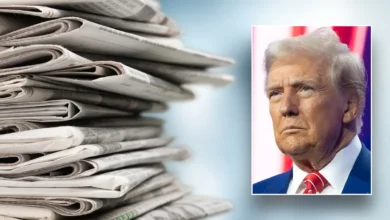Discovering Hawk Tuah: The Legendary Figure in Malay Folklore

Introduction to Hawk Tuah
Hawk Tuah, a revered figure in Malay folklore, stands as a symbol of bravery and loyalty in Malaysian culture and history. His legend is rich, characterized by extraordinary feats and profound moral lessons that resonate throughout the region. The tales of Hawk Tuah not only entertain but also serve to educate listeners about values such as honor, friendship, and justice, thus cementing his status as a cultural touchstone.
Within the narratives, Hawk Tuah is often depicted as a formidable warrior, embodying the spirit of resilience and strength. His exploits frequently include interactions with the mystical and supernatural, showcasing the blend of human endeavor and spiritual intervention that is common in folklore. This characteristic lends a riveting quality to the stories of Hawk Tuah, making them both captivating and instructive. Furthermore, he is known for his unwavering loyalty to his sultan, a theme that underlines the importance of fidelity and service in traditional Malay society.
The tales surrounding Hawk Tuah have transcended generations, evolving through oral traditions, literary works, and even modern adaptations in theatre and film. This continuity highlights his enduring relevance in Malaysian identity. The narratives often explore conflicts that require wisdom and courage to resolve, reflecting societal values that are as pertinent today as they were in the past. Through these legendary tales, Hawk Tuah emerges not merely as a historical figure but as an archetype of virtue, embodying the ideals that many aspire to uphold in their lives.
As we delve deeper into the multifaceted stories of Hawk Tuah, we will uncover the rich tapestry of his character, the various interpretations of his legend, and examine the profound impact he has had on Malay cultural heritage.
The Origins of Hawk Tuah
The legend of Hawk Tuah finds its roots in the rich tapestry of Malay folklore, interwoven with historical events and cultural narratives that date back centuries. Often depicted as a steadfast and valiant warrior, Hawk Tuah embodies the ideals of bravery, loyalty, and honor, characteristics that resonate deeply within Malay culture. His origins can be traced to the Malacca Sultanate during the 15th century, a critical period in which trade flourished and various influences shaped the social fabric of the region.
Numerous myths and stories contribute to the characterization of Hawk Tuah, illustrating him not merely as a historical figure but as a symbol of resilience and strength. His journey is marked by numerous encounters with adversaries and his unwavering loyalty to the Sultan, which reflects the values upheld by the society of his time. Historical influences, including interactions with foreign traders as well as conflicts with colonial powers, serve as a backdrop to the narrative of Hawk Tuah, illustrating the complexities of identity and struggle within the Malay context.
One prominent tale highlights his legendary encounters with mystical creatures, portraying him as more than a mere human but rather a figure endowed with supernatural abilities. Such stories metaphorically represent the inner struggles of the Malay people, emphasizing the importance of perseverance in the face of adversity. Moreover, the synthesis of various cultural elements, including Hindu, Islamic, and indigenous beliefs, plays a critical role in shaping Hawk Tuah’s legendary status.
As the narrative of Hawk Tuah continues to evolve, it intertwines with the collective memory of the Malay people. His legend stands as a testament to the cultural heritage and the enduring spirit of a society that values its history and legends. The study of his origins provides valuable insights into the historical and social dynamics that continue to influence contemporary Malay identity.
Hawk Tuah’s Character and Traits
The legendary figure of Hawk Tuah, a prominent character in Malay folklore, embodies a unique set of personality traits and skills that endear him to generations. One of the most notable aspects of Hawk Tuah’s character is his unwavering bravery. As a warrior, he is often depicted as someone who confronts danger head-on, showcasing an extraordinary level of courage in the face of adversity. His relentless pursuit of justice, even against seemingly insurmountable odds, establishes him as a paragon of heroism within the Malay community.
In addition to his bravery, loyalty stands out as a defining trait of Hawk Tuah. Whether to his family, friends, or his sultan, his commitment is absolute and unwavering. This quality not only cements his relationships but also fosters a sense of unity among those who ally with him. Hawk Tuah’s loyalty is often illustrated through various tales where he puts the well-being of others before his own, reinforcing his role as a selfless leader and warrior.
Another hallmark of Hawk Tuah’s persona is his martial prowess. He is portrayed as a master of various martial arts, exhibiting skills that surpass those of his contemporaries. This expertise in combat is not merely for personal glory; rather, it is utilized to protect the oppressed and uphold justice. This combination of bravery, loyalty, and combat skill transforms him into an archetype of the ideal hero, revered not only for individual accomplishments but also for the moral values he represents.
In conclusion, Hawk Tuah’s character traits—his bravery, loyalty, and martial prowess—forge a legendary figure who continues to inspire admiration and respect within the Malay community. Through the tales of his exploits, the essence of what it means to be a true hero is encapsulated, resonating deeply across time and culture.
The Role of Hawk Tuah in Malay Literature
Hawk Tuah, a prominent figure in Malay folklore, occupies a significant position in the landscape of Malay literature. His narrative spans across various literary forms, including poetry, prose, and historical texts, showcasing his multifaceted character and the diverse themes associated with his legend. These literary portrayals not only reflect the cultural values of the Malay community but also serve to reinforce the symbolic representation of heroism, loyalty, and moral integrity in the face of adversity.
In classic Malay poetry, such as the gleeful ballads and intricate pantun, Hawk Tuah often emerges as a symbol of valor and honor. The themes of bravery and allegiance to one’s king and country resonate throughout these works, positioning him as an ideal hero in the eyes of the readers. His unwavering loyalty to Sultan Melaka and his embodiment of ethical values have inspired countless poets to celebrate his exploits, thereby solidifying his image in the realm of myth and legend.
Similarly, in prose narratives, Hawk Tuah’s adventures serve to illustrate the complexities of human nature and the struggles inherent in leadership. Novels and short stories often delve into his personal dilemmas, exploring the thematic interplay between duty and personal sacrifice. This exploration provides modern audiences with nuanced interpretations of his character, prompting reflections on contemporary issues such as justice and governance.
Historical texts also play a crucial role in the documentation of Hawk Tuah’s legacy. These works often contextualize his experiences within broader historical occurrences, marrying folklore with factual accounts. By examining these texts, scholars can trace the evolution of the Hawk Tuah narrative and its impact on Malaysian identity. Through this interconnection of literature and history, Hawk Tuah remains a vivid figure, continuously influencing contemporary discourse on culture and heritage.
Hawk Tuah and His Companions
The legend of Hawk Tuah is not merely about the protagonist himself but also intricately woven with the lives of several key figures who played pivotal roles throughout his narrative. Among his most notable companions is the valiant Hang Jebat, a figure characterized by his unwavering loyalty and friendship with Hawk Tuah. Their bond stands as a testament to camaraderie, but it is also layered with complexities that eventually lead to conflict. Hang Jebat’s defiance against authority, spurred by his sense of justice, contrasts sharply with Hawk Tuah’s adherence to duty and loyalty to the Sultan, creating a rich tapestry of conflicting ideals within the story.
Another significant figure in Hawk Tuah’s journey is the wise and scholarly Hang Kasturi. With his extensive knowledge and strategic thinking, Hang Kasturi often serves as a counsel to Hawk Tuah and is integral in navigating the challenges that arise in their adventures. His presence adds depth to the relationships among this trio, highlighting the importance of wisdom and intellect alongside bravery in a tumultuous environment.
Conversely, Hawk Tuah also encounters adversaries, with the Sultan’s enemies or jealous figures within the royal court who pose threats to his mission. These characters embody the darker side of the tales surrounding Hawk Tuah, showcasing the friction between loyalty to the Sultan and the personal convictions that motivate the hero’s quest. The dynamics between friends and foes alike amplify the story’s emotional landscape, demonstrating that loyalty comes at a cost and that the moral quandaries faced by these figures are universal. Through the lens of these relationships, the folklore surrounding Hawk Tuah evolves, ensuring its enduring relevance in Malay culture.
Hawk Tuah in Popular Culture
The legacy of Hawk Tuah, a revered figure in Malay folklore, extends well beyond traditional storytelling, finding its way into various contemporary media forms including films, television series, and theatrical performances. This iconic character symbolizes bravery, honor, and loyalty, themes that resonate deeply within the cultural fabric of Southeast Asia. As such, adaptations of Hawk Tuah frequently explore these attributes, bringing his narrative to modern audiences in engaging and relatable ways.
In cinema, several films have been produced that feature Hawk Tuah as the central character or as a prominent figure guiding the protagonist on their journey. These adaptations often harness stunning visuals and exemplary storytelling techniques, aiming to capture the essence of Hawk Tuah’s adventures while infusing contemporary values and insights. They not only preserve traditional narratives but also create fresh interpretations that appeal to both old and new generations.
Television dramas have also embraced the allure of Hawk Tuah, often depicting his life as a mélange of epic battles, personal sacrifices, and moral dilemmas. Such series provide ample opportunities for character development, allowing viewers to witness the complexities of Hawk Tuah’s personality. The openness with which these narratives address themes such as loyalty to one’s country and moral integrity helps to cement the character’s relevance in today’s society.
Theatrical interpretations further exemplify the dynamic nature of Hawk Tuah’s storytelling. Live performances can invoke a unique atmosphere that fosters an intimate connection between the audience and the narrative. Through choreography, music, and dramatic dialogue, practitioners often seek to evoke the timeless spirit of Hawk Tuah, embedding his cultural significance into the hearts of viewers.
Through these diverse representations in popular culture, Hawk Tuah continues to serve as a symbol of valor, demonstrating the strength of traditional folklore in modern media while inspiring future generations to appreciate and engage with their rich heritage.
Symbolism of Hawk Tuah
The figure of Hawk Tuah holds a significant place in Malay folklore, embodying a myriad of values that resonate deeply within Malay society. He is often depicted as a paragon of justice and honor, symbolizing the ideals that individuals in the community aspire to uphold. Through the tales passed down from generation to generation, Hawk Tuah represents the relentless fight against oppression and injustice, serving as a reminder of the courage necessary to confront tyrants and protect the vulnerable. This archetype not only reflects the values cherished by the Malay people but also allows for a rich exploration of their cultural identity.
In addition to the intrinsic qualities of bravery and honor, Hawk Tuah embodies the spirit of resilience against adversity. His stories often feature him overcoming substantial challenges, which serves to inspire individuals within the community to persevere through their own struggles. This resilience is an essential characteristic embedded in the Malay identity, illustrating the communal tendency to rise against difficulties and injustices. Hawk Tuah’s character advocates for a collective determination, making him an enduring emblem of hope and strength.
Moreover, the tale of Hawk Tuah resonates on a societal level, symbolizing the struggle of the Malay people against colonialism and external domination. Throughout history, the figure has come to embody the broader narrative of resistance against forces that seek to undermine their culture and autonomy. The continuity of this narrative fosters a shared understanding of the past and an appreciation for their cultural heritage, strengthening the bonds within the community. Thus, Hawk Tuah stands not only as a legendary warrior but as a lasting symbol of justice, honor, and the embodiment of the Malay identity through the ages.
Modern Interpretations of Hawk Tuah
The legend of Hawk Tuah has transcended generations, finding new expressions and adaptations in contemporary storytelling. As societies evolve, the narratives surrounding Hawk Tuah have been reinterpreted to resonate with current social, cultural, and political issues. Writers, filmmakers, and artists worldwide have utilized this legendary figure to reflect modern challenges while preserving the essence of his character.
In various adaptations, Hawk Tuah is depicted not only as a skilled warrior but as a symbol of resilience and adaptability. This modern portrayal often emphasizes themes such as justice, loyalty, and the struggle against oppression. For instance, contemporary narratives might embed sociopolitical commentaries into the story of Hawk Tuah, illustrating the fight against corruption or the quest for social equity. Thus, while the backdrop may shift from the historical context of his original tale to contemporary settings, the core values embodied by Hawk Tuah remain intact.
Global interpretations also bring diverse cultural influences into the fold, enriching the narrative with elements reminiscent of other hero archetypes found in different traditions. This blending of influences enables Hawk Tuah to emerge as a multifaceted figure; his journey becomes relatable to a wider audience, stimulating discussions about identity, heritage, and collective memory. The legend’s adaptability highlights the relevance of Hawk Tuah, showing that his story can inspire audiences to navigate their own societal issues.
Moreover, the rise of digital media has facilitated the sharing of these interpretations. Social media platforms and online storytelling avenues have enabled creators to explore and disseminate their renditions of Hawk Tuah swiftly. As a result, a burgeoning community of fans engages with the tale, participating in discussions that further expand its reach and impact. This dynamic interaction showcases Hawk Tuah’s enduring legacy, illuminating his role not merely as a figure from the past but as a relevant icon in contemporary dialogues.
Conclusion: The Enduring Legacy of Hawk Tuah
The legacy of Hawk Tuah remains deeply imprinted in Malay culture, serving as a compelling symbol of courage, loyalty, and justice. As a legendary figure, Hawk Tuah represents the enduring spirit of a hero who faces tremendous challenges with unwavering determination. His narratives, rich with themes of honor and heroism, continue to resonate with audiences, not just in Malaysia but also across the broader Southeast Asian region.
The stories of Hawk Tuah have transcended time, evolving from oral traditions to written literature, theatre, and contemporary media. Each iteration enhances the understanding of his character while infusing modern interpretations that echo the original tale’s values. These adaptations ensure that Hawk Tuah is not merely a relic of the past, but a dynamic figure whose lessons are relevant for new generations. From inspiring personal integrity to instilling a sense of communal pride, the character plays an essential role in teaching the values that shaped the Malay way of life.
Moreover, the tales of Hawk Tuah often intertwine with various aspects of Malaysian identity, including cultural practices, festivals, and national pride. His story fosters a sense of belonging and heritage among the Malay community, reminding them of their roots while encouraging them to carry forward these significant cultural narratives. As societies evolve, the mythos surrounding Hawk Tuah adapts accordingly, thus contributing to a broader understanding of not only Malay folklore but also universal concepts of bravery and morality.
Ultimately, the impact of Hawk Tuah is multifaceted, weaving through history, culture, and personal ideals. This legendary figure not only serves as a focal point for reflection but also upholds a legacy that continues to inspire individuals towards righteousness and valor. Hawk Tuah, therefore, exemplifies the timeless nature of folklore and its capacity to forge connections across generations, ensuring that his spirit endures in the hearts and minds of those who honor his tale.
You May Also Read This Usatechzone



